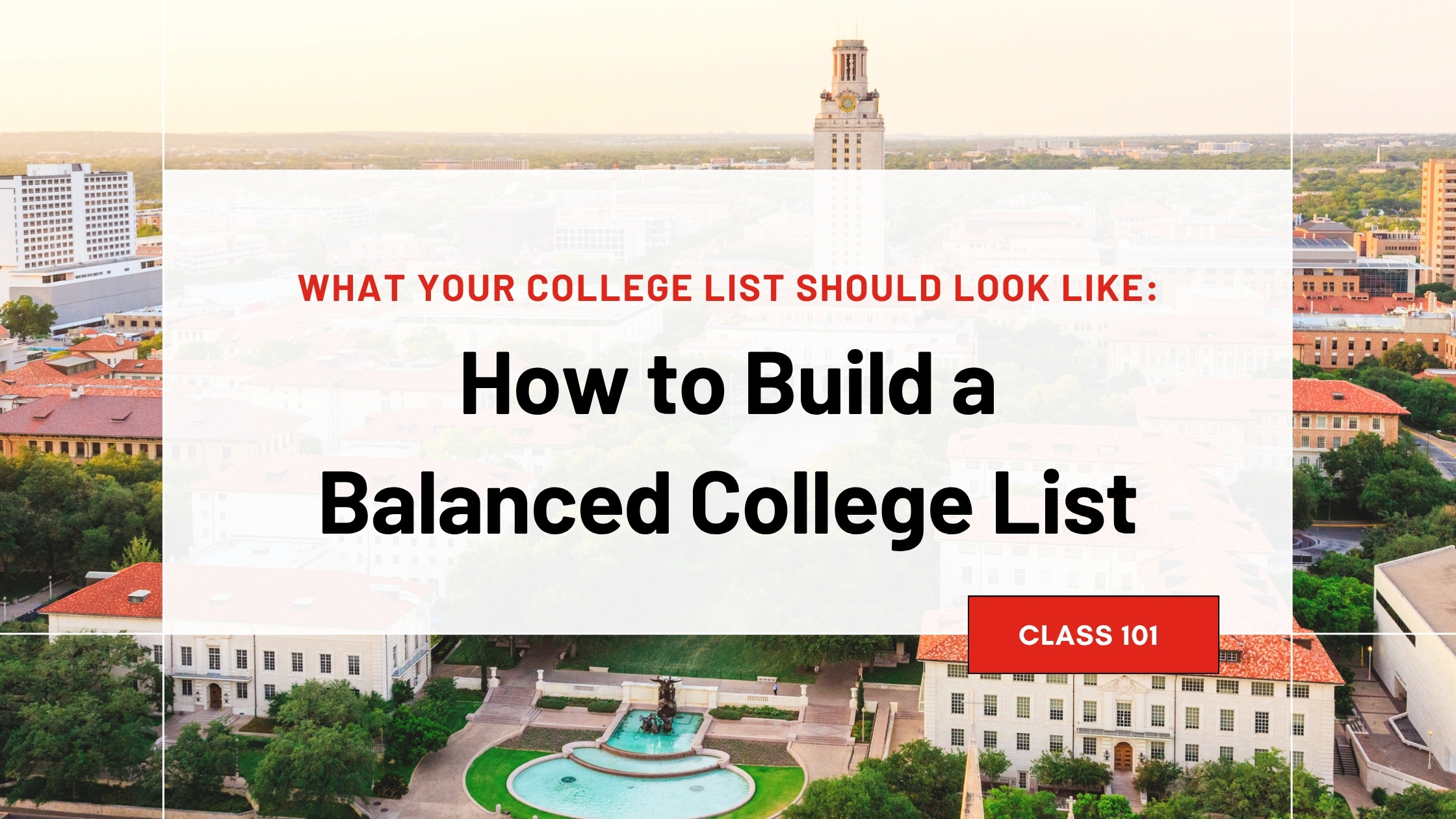July 10, 2022

The saying goes that you can’t judge a book by its cover. Colleges are no different. While every college and university has their own shining website and glossy promotional materials, it can be hard for any student to know what life on campus is like at first glance. Flipping through pamphlets and flyers are rarely helpful in helping a student pick a college that matches their interests. It will also help you get a sense for the academic rigor of that college and whether or not the feeling of the campus culture is right for you. This is an essential step to take before you begin applying to colleges. If you and your family would like help navigating this process, you can reach out to Class 101 today or find a location near you.
What students truly need is an opportunity to see a college up close and in person, and . When students visit college campuses early to compare their options and see which schools stand out from the pack, it always is to their benefit. The more information you have about the schools you want to potentially attend, the more informed of a decision you’ll be able to make. We always say to start campus visits as early as possible and to make sure that you get the most out of it. In order to help you coordinate successful college visits, we’ve compiled this college visit checklist.
It might seem like a pointless errand but the best way to start visiting colleges is to sit down and list out the kinds of schools a student is interested in. Does a student want to attend a large, public university or a small, private college? Do they want to be surrounded by a city or a college town? Are they interested in staying in state or studying outside it?
By answering these questions, students and their families can prioritize visits to certain schools over others. A student who craves intimate classrooms and a school with a religious foundation might want to prioritize a visit to a place like Georgetown University. Conversely, a student who wants to be in a large and dynamic campus with a diverse student body might focus on Ohio State.
After figuring out a list of several “must visit” campuses, the next step is a simple one: calling ahead. By contacting an admissions department over the phone or via email, students and their families can do more than just arrange a tour of the residence halls and academic facilities. They can also see if there are opportunities to meet with faculty, discuss scholarships, and learn about the larger community. At Class 101, we highly recommend students work closely with admissions departments to maximize the opportunities available to them.
After arranging a visit, it is important to stay grounded and remember that a lot can happen between now and the date of your visit. With COVID-19, extreme weather, and other challenges, it is not uncommon for students to find their plans unexpectedly disrupted.
If the college or you need to cancel, don’t panic! If scheduled early enough in advance, students can easily reschedule to a different date and time that works for them. Just make sure that, if you are the one who needs to reschedule due to unforeseen circumstances, you let the admissions department know ahead of time.
Once on campus, families and their students might feel compelled to rush through the tour so they can see other colleges in the area. However, the best visits are those that take time to explore the campus and engage with staff. The more time families give themselves, the more thoughtful your explorations can be. Families can take opportunities to go beyond tours to visit buildings on their own or to meet with faculty and administrators.
All these activities can be crucial in ensuring students see everything that’s on offer. It can help them make sure they pick the right college for themselves.
Finally, students and families should know that they can ask questions at any part in the process. Whether they are requesting an official visit, on a tour, or writing a small note to the office after the fact, families should feel free to ask any questions that arise. Not only can it show that the student is interested and engaged in the school, it can also reveal new aspects of the college or university that might have otherwise been missed.
College visits are a great way to learn about a campus and for students to demonstrate their interest in a college. As a personal goal, we recommend visiting 10 colleges and, to keep your options open, picking seven of the total to apply to. We recommend organizing these visits early so families aren’t rushing around different campuses during application season.
The experienced team of college counselors here at Class 101 are always happy to guide you through identifying and touring colleges you and your family might be interested in. Schedule a free consultation with us today by finding your closest location or feel free to contact us if you have more questions. We also offer assistance in other key steps of the college application process, such as building your college resume or helping you nail the SAT or ACT.

June 24, 2025
It’s around this time of year that many students and families start looking for the right college. This process tends to start with a college list, a collection of schools to apply to that match a student’s academic profile, interests, and the kind of experience they want to have. Having a well-rounded, strategic list of […]
Read More >
June 20, 2025
Every year, Class 101 awards scholarships to four high school students through the 101 Scholars program. Given to students of outstanding merit, it asks students to explain how they’ve used their skills and talents to change their community and the lessons they’ve learned from these experiences. This year, Class 101 is pleased to announce the […]
Read More >
May 22, 2025
One of the central parts of the college application process is the application essays. While grades and test scores give some hint at a student’s capabilities, the essay provides an opportunity for a student to present themselves on their terms. It can be used to show not only who they are but how they think […]
Read More >